MTA Bus Operator QuickPass: Expert Prep Course & Free Practice Test
- Practice Test
- Test Format
- FAQs
- Reviews
Every year, thousands apply to become MTA Bus Operators—but only a select few succeed. The MTA Bus Operator Exam is a rigorous, highly competitive assessment that measures far more than driving ability. It tests essential skills like memory, logic, reading comprehension, and the ability to follow directions under pressure.
MTA Bus Operator QuickPass is designed to help you master these challenges through focused instruction and proven strategies, giving you the confidence and skills to excel—and take the first step toward a stable, rewarding career that keeps New York City moving.
Free MTA Bus Operator Exam Practice Test
Test your current skills for the MTA Bus Operator Exam with our free practice test.
MTA Bus Operator Exam Practice Test
What is the MTA Bus Operator Exam?
With nearly 6,000 buses covering 325 routes, the Metropolitan Transportation Authority (MTA) plays a vital role in keeping New York City moving. To ensure skilled and reliable professionals operate its buses, the MTA Bus Operator Exam evaluates candidates’ ability to meet the demands of this critical role.
Also referred to as the MTA Bus Operator Multiple Choice Exam or MTA MCE, this test assesses whether candidates can handle the real-world responsibilities of a bus operator, including:
- Safe and Efficient Operation: Navigating city streets while adhering to traffic regulations and MTA policies.
- Passenger and Vehicle Safety: Conducting inspections and ensuring the well-being of passengers and the bus.
- Maintaining Routes and Schedules: Following assigned routes and staying on time.
- Accurate Reporting: Writing clear and concise work-related reports.
Passing this exam is the first step toward joining one of the nation’s largest public transit systems. It ensures that candidates meet the high standards required to serve millions of New Yorkers daily.
Format of the MTA Bus Operator Exam
The MTA Bus Operator Exam is structured to assess a wide range of skills and abilities that are essential for successfully performing the duties of an MTA Bus Operator. Below are the key sections of the exam, along with the skills each section is designed to test:
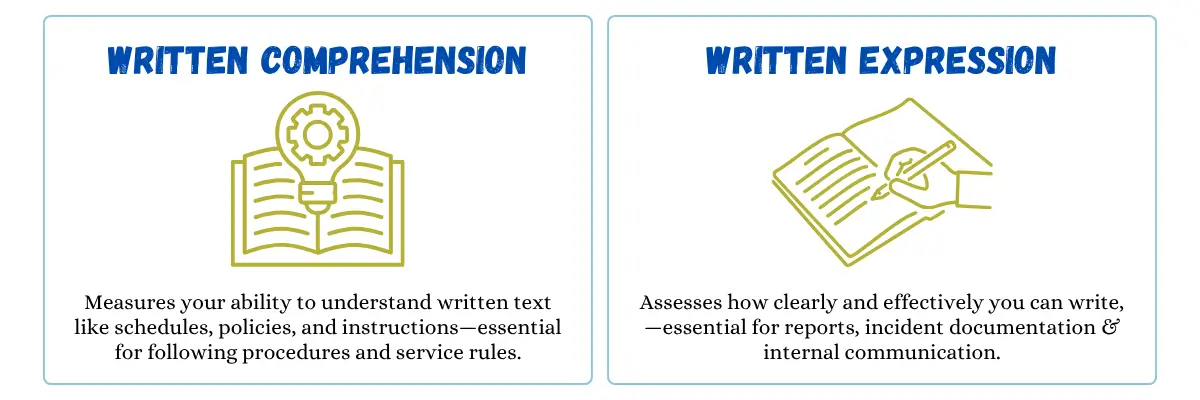
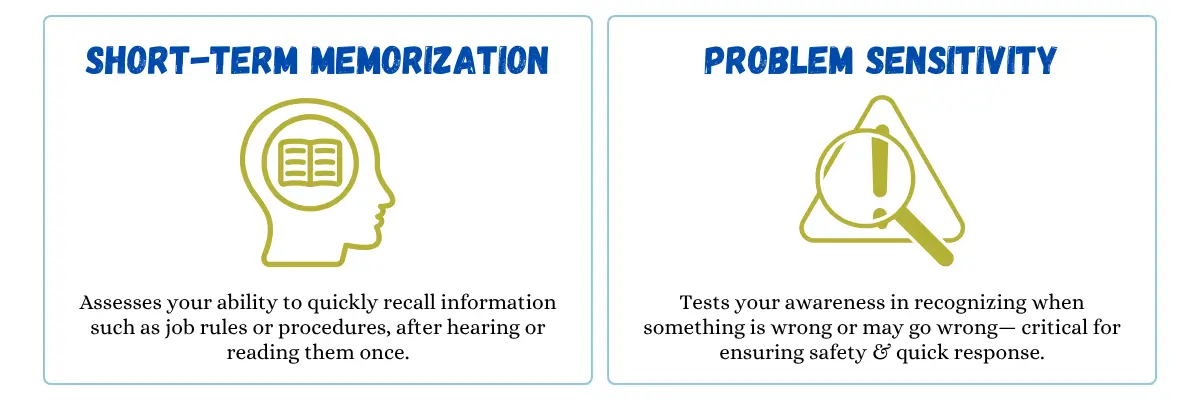
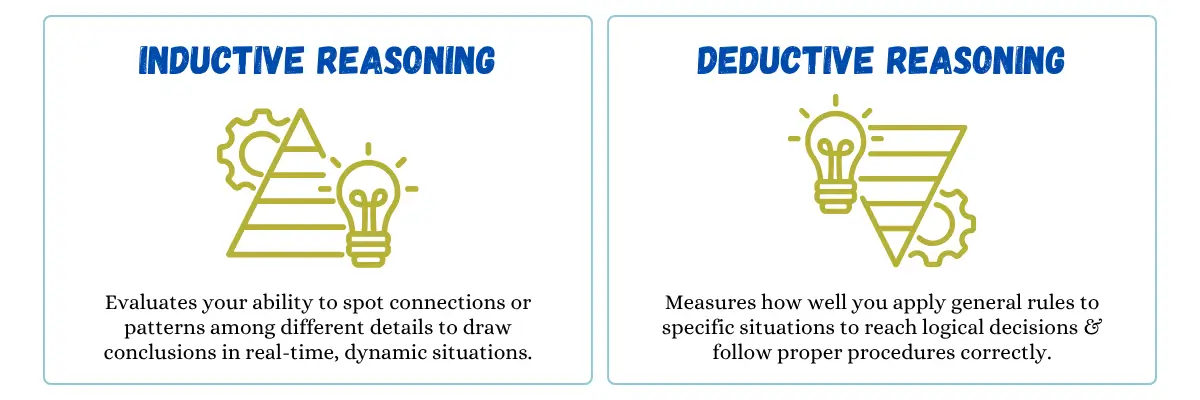
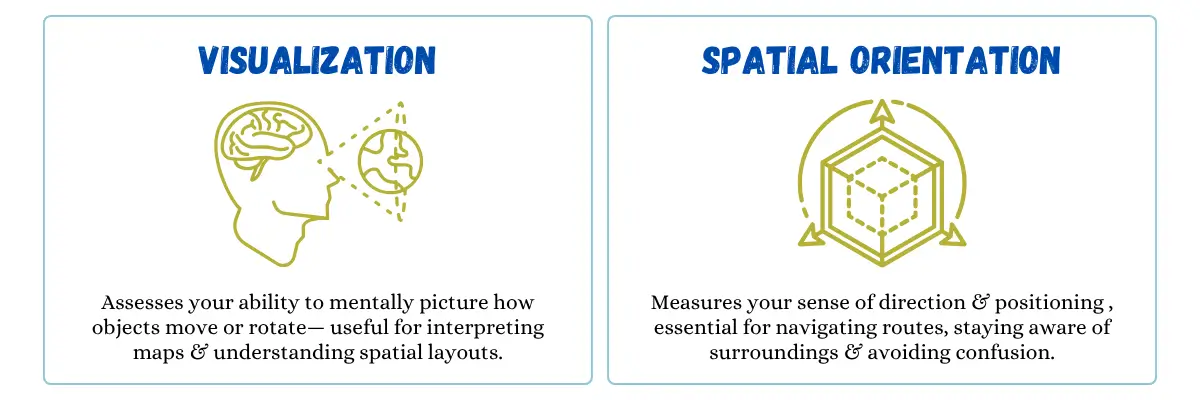
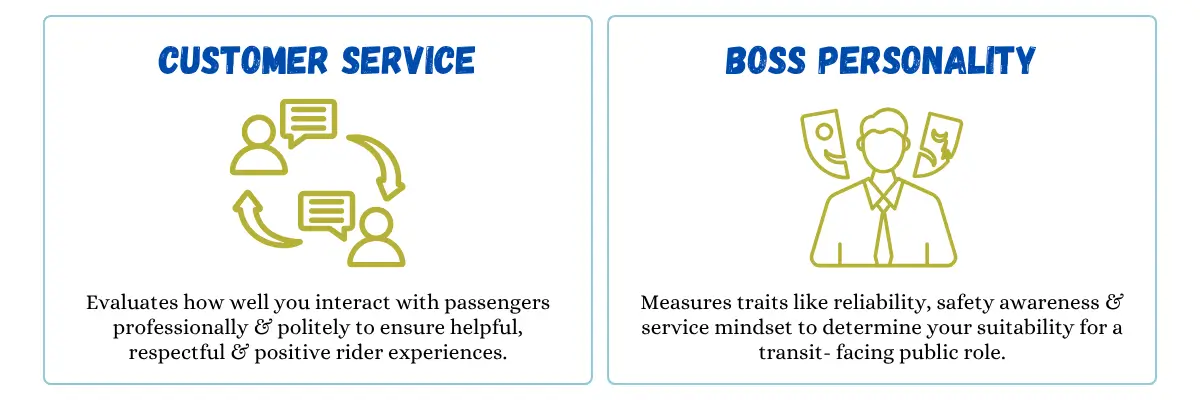
Each of these sections is carefully designed to evaluate the practical abilities required to perform the role of an MTA Bus Operator effectively. Preparing for these sections ensures that you are equipped to handle the demands of the job and succeed in the exam.
MTA Bus Operator Exam Sample Questions
Below are sample questions reflecting the major components of the MTA Bus Operator Exam. They serve as a preview of the test’s coverage—from reasoning and memory to customer service scenarios.
Take a moment to explore what you might face on exam day.
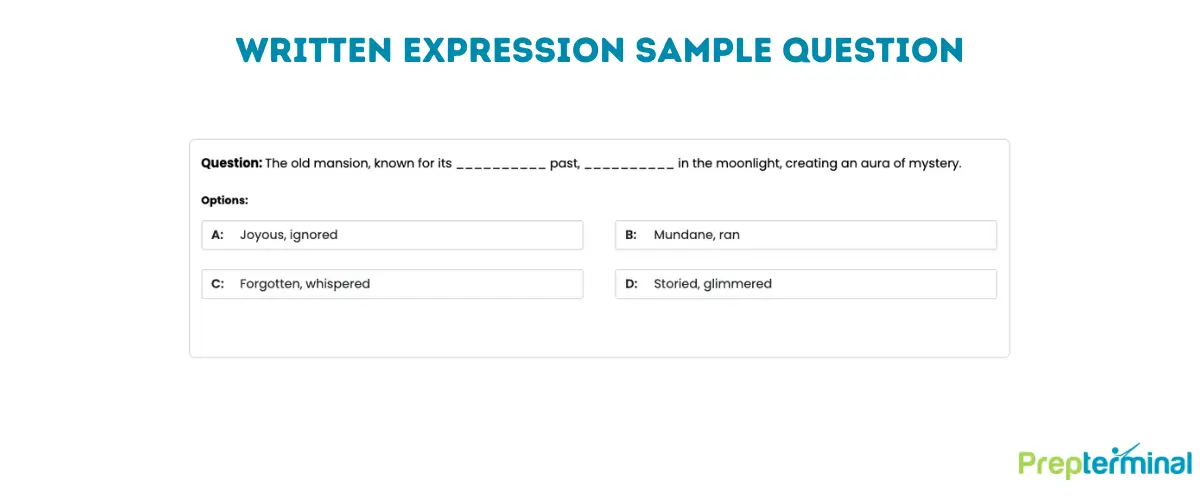
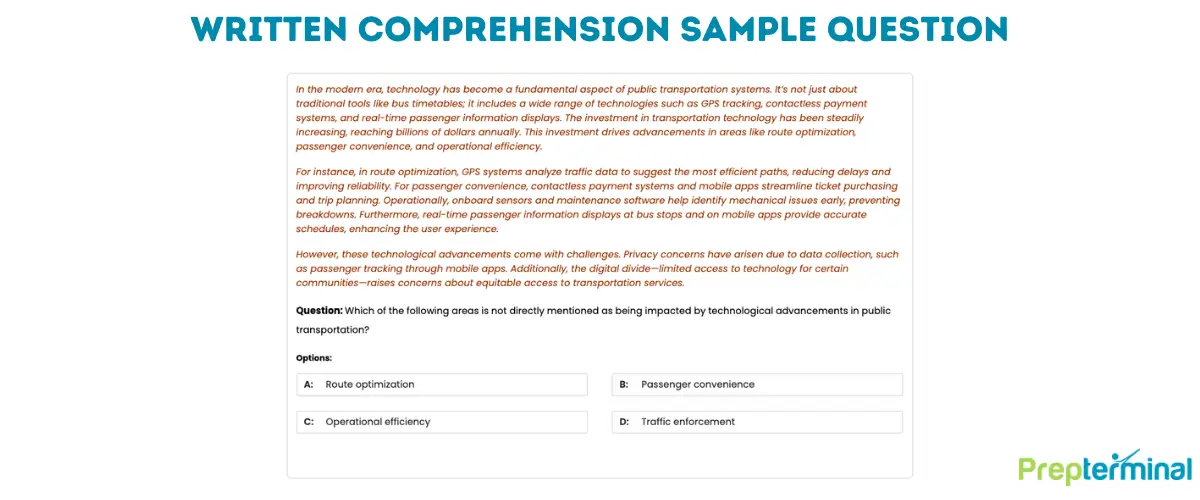
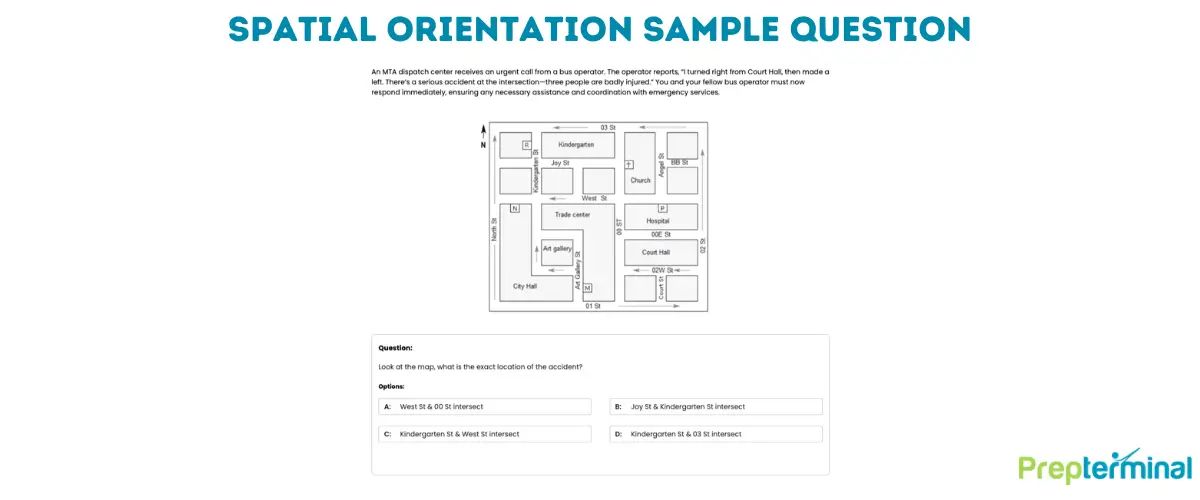
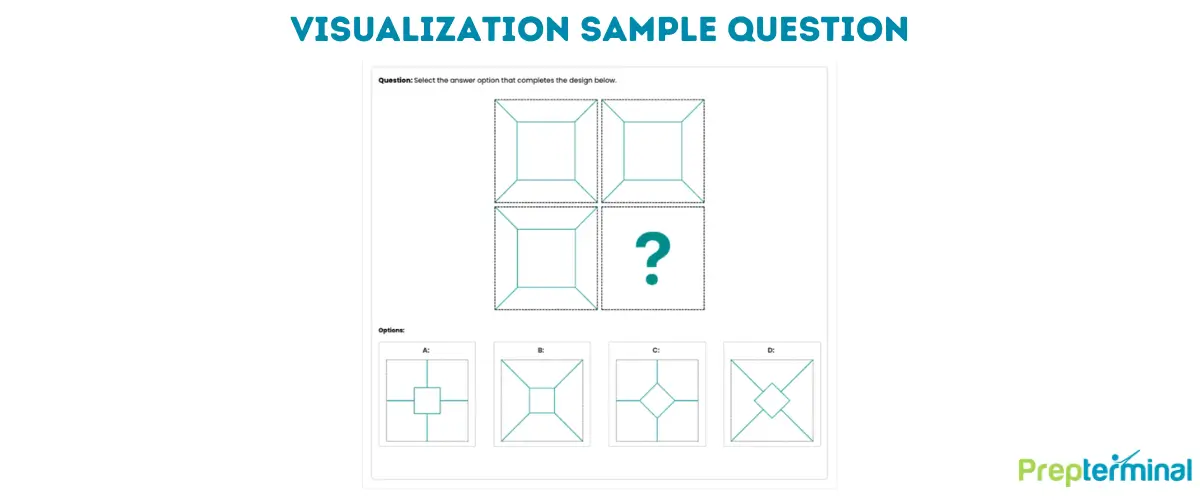
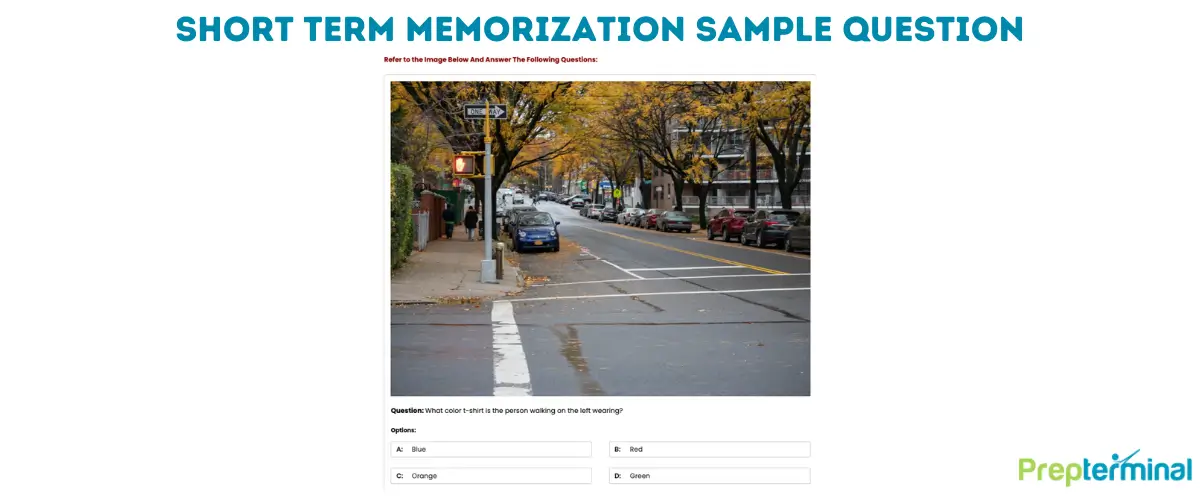
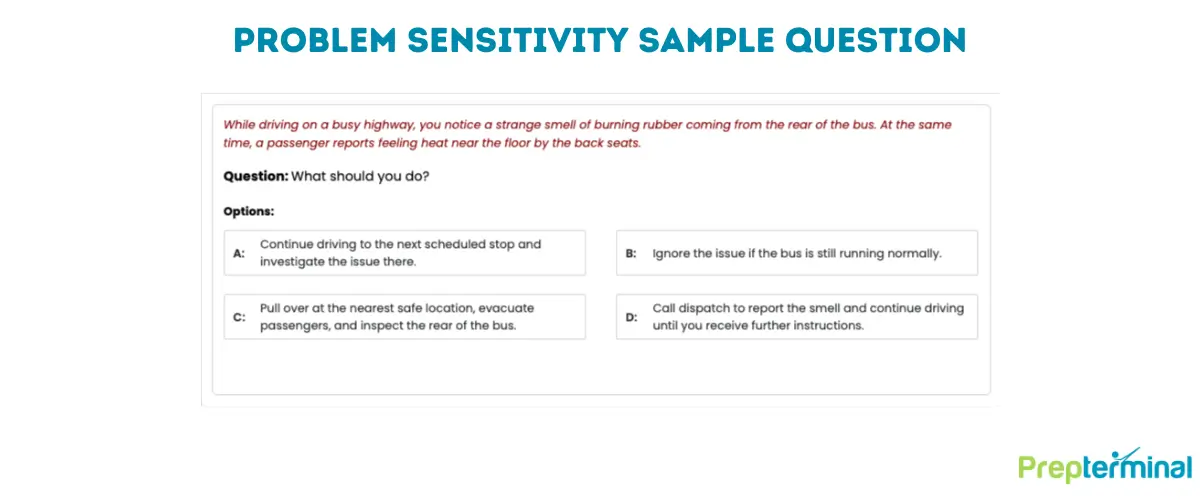
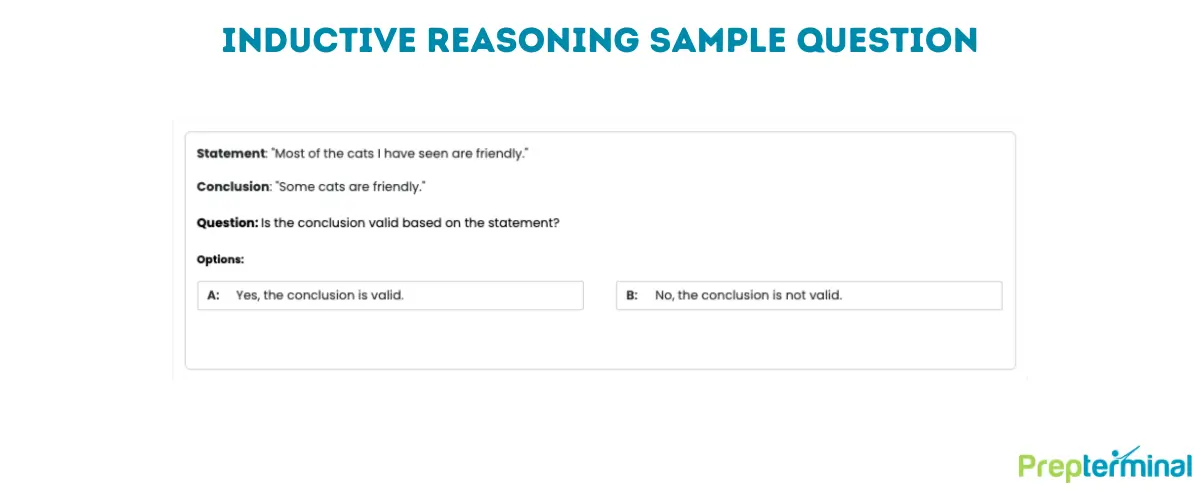
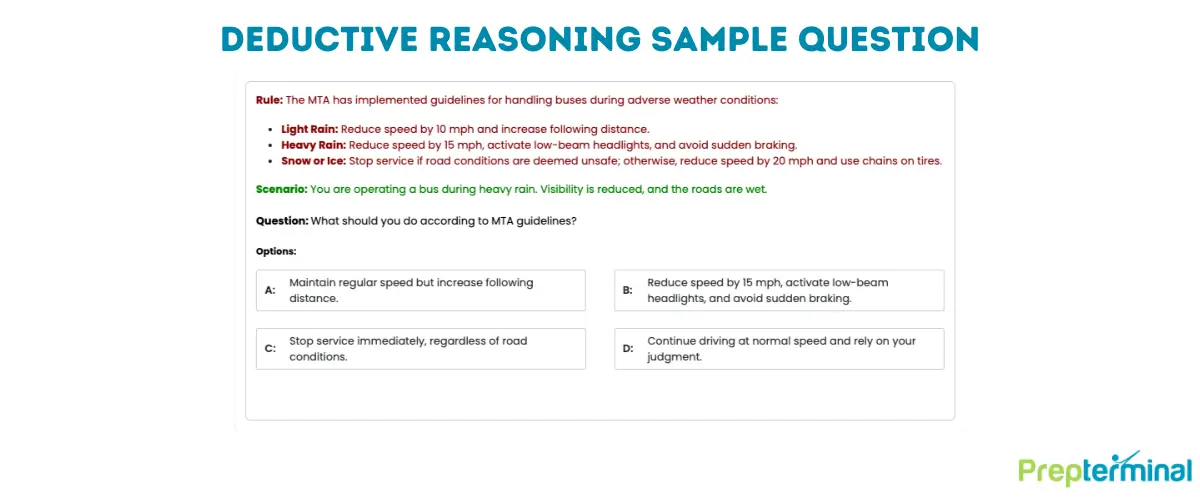
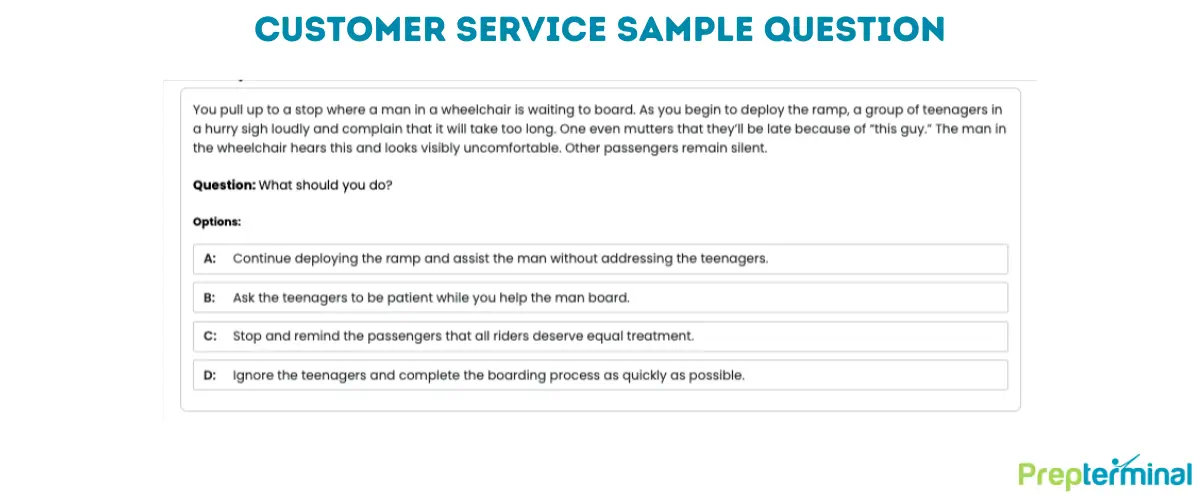
*Screenshots from our MTA Bus Operator Exam Prep Course
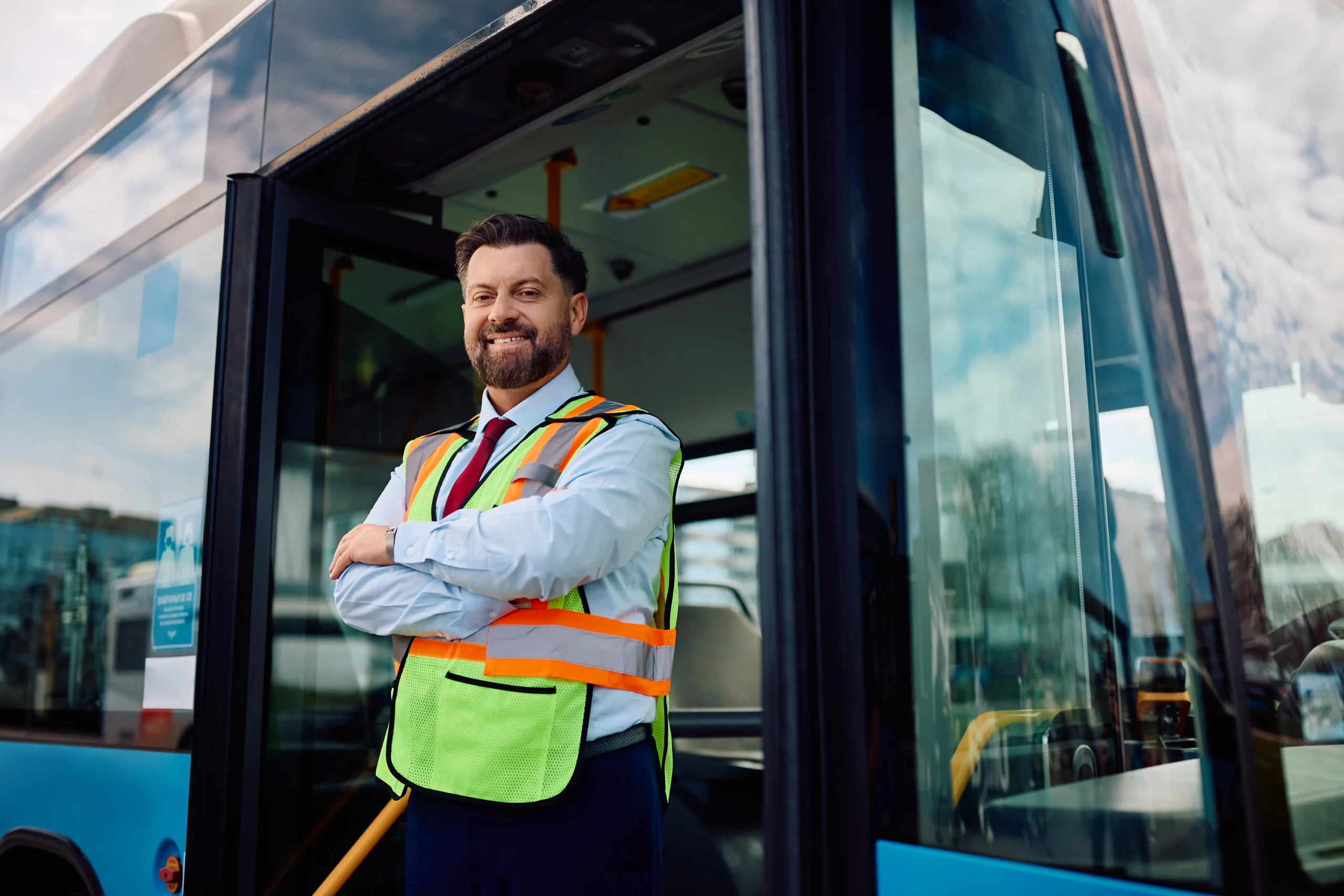
MTA Bus Operator QuickPass
Last Updated: Oct 13, 2025
Course Content
-
 Introduction 1 StepBuy this Course: Get full access to all lessons, practice tests and guides.
Introduction 1 StepBuy this Course: Get full access to all lessons, practice tests and guides. -
 Written Comprehension 4 StepsBuy this Course: Get full access to all lessons, practice tests and guides.
Written Comprehension 4 StepsBuy this Course: Get full access to all lessons, practice tests and guides. -
 Written Expression 4 StepsBuy this Course: Get full access to all lessons, practice tests and guides.
Written Expression 4 StepsBuy this Course: Get full access to all lessons, practice tests and guides. -
 Short Term Memorization 4 StepsBuy this Course: Get full access to all lessons, practice tests and guides.
Short Term Memorization 4 StepsBuy this Course: Get full access to all lessons, practice tests and guides. -
 Problem Sensitivity 4 StepsBuy this Course: Get full access to all lessons, practice tests and guides.
Problem Sensitivity 4 StepsBuy this Course: Get full access to all lessons, practice tests and guides. -
 Deductive Reasoning 4 StepsBuy this Course: Get full access to all lessons, practice tests and guides.
Deductive Reasoning 4 StepsBuy this Course: Get full access to all lessons, practice tests and guides. -
 Inductive Reasoning 4 StepsBuy this Course: Get full access to all lessons, practice tests and guides.
Inductive Reasoning 4 StepsBuy this Course: Get full access to all lessons, practice tests and guides. -
 Spatial Orientation 4 StepsBuy this Course: Get full access to all lessons, practice tests and guides.
Spatial Orientation 4 StepsBuy this Course: Get full access to all lessons, practice tests and guides. -
 Visualization 4 StepsBuy this Course: Get full access to all lessons, practice tests and guides.
Visualization 4 StepsBuy this Course: Get full access to all lessons, practice tests and guides. -
 Customer Service 5 StepsBuy this Course: Get full access to all lessons, practice tests and guides.
Customer Service 5 StepsBuy this Course: Get full access to all lessons, practice tests and guides. -
 BOSS Personality Test 2 StepsBuy this Course: Get full access to all lessons, practice tests and guides.
BOSS Personality Test 2 StepsBuy this Course: Get full access to all lessons, practice tests and guides. -
 Full Size Practice Quiz 2 StepsBuy this Course: Get full access to all lessons, practice tests and guides.
Full Size Practice Quiz 2 StepsBuy this Course: Get full access to all lessons, practice tests and guides.
Why Choose MTA Bus Operator QuickPass?
Preparing for the MTA Bus Operator Exam requires focused and effective preparation, and our course is designed to give you the edge you need to succeed. Here’s what sets our prep course apart:
- In-Depth Lessons: Master every section with clear, simplified lessons that break down complex concepts into easy steps.
- 500+ Practice Questions: Build confidence with exam-style questions that reflect real test formats and sharpen problem-solving skills.
- Realistic Practice Tests: Sharpen your skills with quizzes at all difficulty levels and two full-length practice tests in timed or untimed modes to boost speed and track progress.
- Step-by-Step Explanations: Learn the reasoning behind every answer with clear, detailed solutions that reinforce key concepts.
- Targeted Test Strategies: Use proven techniques tailored to each section to approach test day with confidence.
- Study Anytime, Anywhere: Access the course 24/7 and learn at your own pace – perfect for busy schedules.
- No Experience Needed: Perfect for beginners—start from scratch and progress confidently toward test success, even if you have no prior background.
Frequently Asked Questions (FAQs)
When is the next MTA Bus Operator Exam?
The next open-competitive Bus Operator exam (Exam No. 6600) has an application period from July 1, 2025, through August 15, 2025, and a $68.00 fee. The multiple-choice test is expected to begin on October 6, 2025.
Who is eligible to take the MTA Bus Operator Exam?
To be eligible for the MTA Bus Operator Exam, candidates must meet the following requirements:
Driver License: Possess a valid NY State driver’s license for at least three years prior to appointment. Candidates must have either:
- Class A or B Commercial Driver License (CDL) with a passenger endorsement and no restrictions, or
- Learner’s Permit for a Class B CDL with a passenger endorsement (must obtain the full CDL during training).
Military/National Guard Driving Experience: Candidates with recent military or National Guard experience driving commercial vehicles may qualify for a waiver of the NY State driving skills test.
Medical and Drug Testing: Meet medical standards for the role and pass a drug screening. Random drug and alcohol tests will apply throughout employment.
English Proficiency: Must understand and communicate effectively in English.
Proof of Identity: Provide valid proof of identity and eligibility to work in the U.S.
Residency: NYC residency is not required for this position.
What does the BOSS Exam entail?
The BOSS (Bus Operator Selection Survey) Exam consists of 75 questions that assess personality traits relevant to bus operation, such as dependability, safety adherence, and interpersonal skills. Candidates have 75 minutes to complete this exam.
How is the BOSS Exam scored?
The BOSS Exam is scored on a pass/fail basis. Approximately one-third of candidates may fail due to unsuitable personality traits that do not align with the requirements for safe bus operation.
What is the passing score of the MTA Bus Operator Exam?
A passing score for the Multiple-Choice Exam is typically set at 70% or higher. Candidates who achieve this score are eligible for consideration on the MTA’s employment list, but higher scores may improve chances due to competitive ranking among applicants.
Is there a fee to take the MTA Bus Operator Exam?
Yes, there is an application fee for the MTA Bus Operator Exam. Applicants are required to pay a fee of $68, and this fee is generally nonrefundable except under certain conditions specified in the examination notice.
Can I retake the MTA Bus Operator Exam if I don’t pass?
Candidates who do not pass the exam may have the opportunity to retake it, but this depends on the MTA’s recruitment schedule and policies. Retaking the test usually requires reapplying and paying the application fee again.
What happens after passing the MTA Bus Operator Exam?
Once you pass the MTA Bus Operator Exam, your name is added to an eligibility list. When a position becomes available, candidates are contacted in rank order to proceed with the next steps, which include interviews, medical exams, and background checks.
What is the best way to prepare for the MTA Bus Operator Exam?
The best way to prepare is by building the skills tested, understanding job-related scenarios, and practicing with targeted materials. Candidates using realistic test simulations and structured exercises often achieve significantly higher scores.
Our prep course provides in-depth lessons and realistic practice tests that mirror the actual exam, helping you master key concepts, familiarize yourself with the format, and build confidence to excel.

Created by: Michael Lerner
BSc, Psychometric Tutor, Prepterminal Test Expert
867 students, 4.6, 179 Reviews
Welcome to MTA Bus Operator QuickPass! I’m Michael, here to help with any questions you have about preparing for the MTA Bus Operator Exam. Feel free to reach out anytime at: [email protected].
